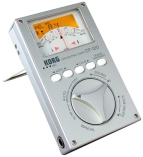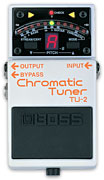In the first part of this tutorial I mainly talked about the foundations. It is absolutely vital to have a good basis from  which to operate. I cannot stress this enough. I have met a lot of people who don’t take this rule seriously and think they know better. Oftentimes their enthusiasm leads to a quick minor success. They then think they know it all. They think they made the right decision and that all the the other guys, who take their time and follow the advice of the real pros out there, are wasting their time. These people burn like the proverbial moth in the fire of reality!
which to operate. I cannot stress this enough. I have met a lot of people who don’t take this rule seriously and think they know better. Oftentimes their enthusiasm leads to a quick minor success. They then think they know it all. They think they made the right decision and that all the the other guys, who take their time and follow the advice of the real pros out there, are wasting their time. These people burn like the proverbial moth in the fire of reality!
First of all: by all means, tune your guitar. This sounds basic, but you would be surprised at the number of guitarists who show up with their guitars out of tune. If you are in hurry and don’t have a tuner at hand, you can find a guitar tuner online, which you should put to use to tune your guitar. That is the first thing at every job. No matter if you’re playing a live gig or if you’re booked for a recording session. Professional players always have their guitar tuned spot on. They don’t mess around.
What they know is that even the slightest detuning can mess up a whole recording. With singers it is pretty much standard procedure these days to correct their pitch with Autotune or a similar product. The use of autotune is so widespread that you would probably have a hard time finding a pop recording from the last 10 years, where it isn’t used. Application of a pitch correction software or hardware is rampant. Sometimes Autotune is even used as an effect on its own. You can hear it on many recordings by a whole variety of famous artists. I myself used it a couple of times when mixing an album by an absolute top artist (Cher).
However, Autotune does not work for guitar! You have to play spot on or you will get creamed. Any deviation from standard pitch, however slight, is going to wreak havoc on the final mix. It is a surefire way to Valhalla. The thing is: you often don’t even realize that a guitar is out of tune, until it’s too late. Oftentimes a detuned guitar, when played on its own, sounds perfectly fine if it is tuned to the lowest string.
Also slight detuning of single strings might be inaudible on its own. It sounds ‘good enough’ and so neither the  band members nor the recording engineer notice the ticking time bomb. And then in the final stages, the guitarist might already be on the plane home, it goes Ba-Boom in their faces. The work of days might be in danger and there nothing you can do about it. The guitarist played his riffs and solos…little did he know that he was heading down a steep hill. And Valhalla awaits in the valley. A tuner is the number one tool in the arsenal of every serious pro-player.
band members nor the recording engineer notice the ticking time bomb. And then in the final stages, the guitarist might already be on the plane home, it goes Ba-Boom in their faces. The work of days might be in danger and there nothing you can do about it. The guitarist played his riffs and solos…little did he know that he was heading down a steep hill. And Valhalla awaits in the valley. A tuner is the number one tool in the arsenal of every serious pro-player.
Nowadays with the internet being at an all-time-high, many guitarists prefer to use an online guitar tuner for convenience sake, but it doesn’t matter what you use, as long as you use it! Most pros use a good old Boss tuner for example, but there are a huge number of brands to choose from. See what fits you. It is no use to buy a certain tuner just because player X or Y uses it too. Choose the tuner that YOU want and you will be off to a good start.
